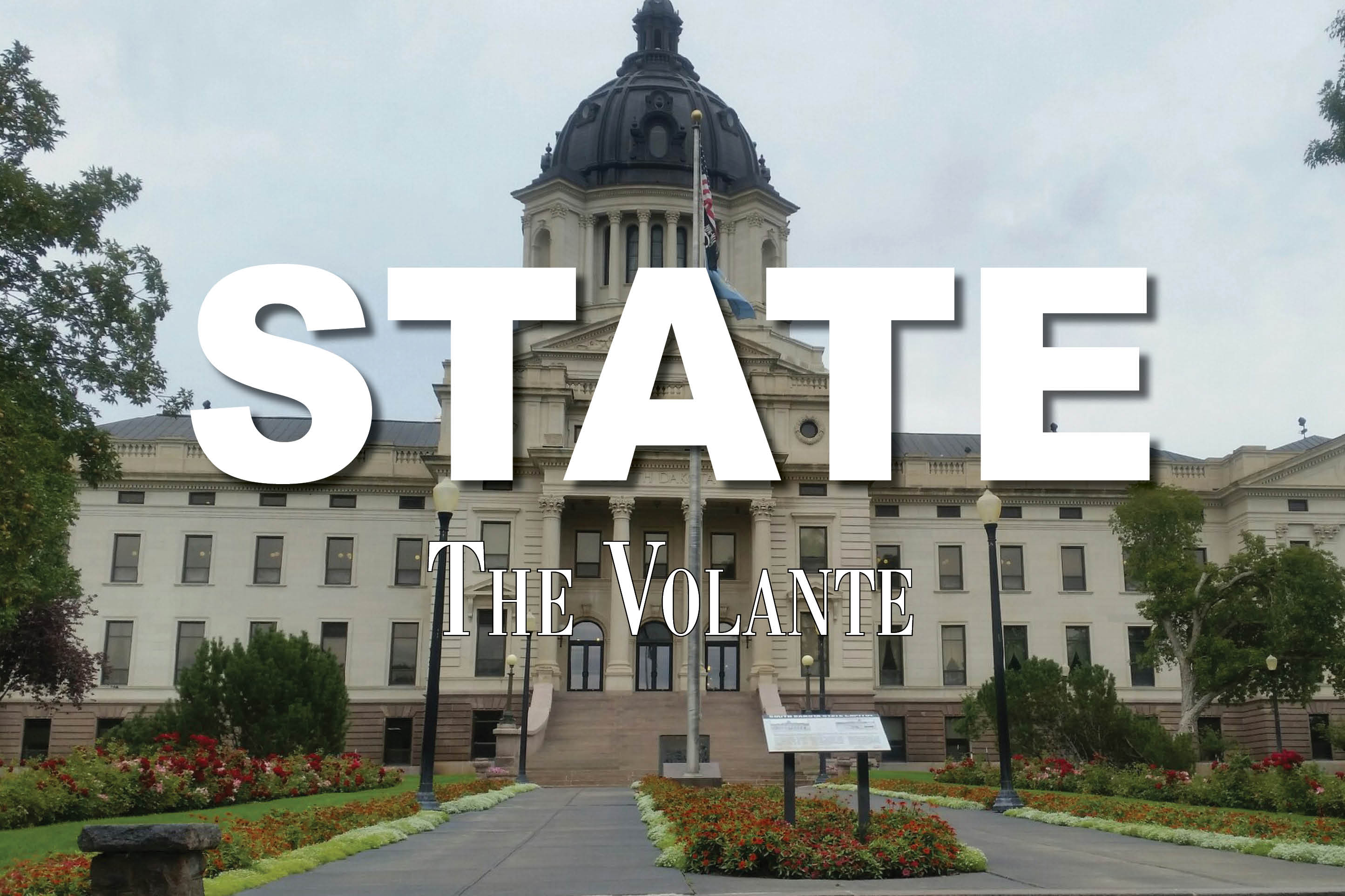
Senate Bill 103 proposal could prohibit undocumented students from attending state universities
In reaction to the introduction of a sanctuary campus resolution in Student Government Association by former SGA senator Josh Arens last year, a state Senate bill has been proposed.
Senate Bill 103, which could potentially prohibit undocumented students from attending South Dakota Board of Regents schools and receiving in-state tuition and financial aid was introduced by Sen. Stace Nelson, R-Fulton, in response to the proposed SGA resolution, which was ultimately vetoed and never came to fruition.
Arens said in an email with The Volante that he fought to override the veto.
“I don’t think the then-President of SGA should have vetoed it,” he said. “His veto was based off the idea that we’d lose funding, which was and still is an unfounded argument.”
As the bill is written, the SDBOR would have to “develop and institute a process” where universities have to verify with the federal government that each student has a “lawful presence” in the U.S.
In an email with The Volante, Mike Rush, executive director and CEO of the SDBOR, said universities are not equipped to make that judgment.
“The universities do not make a determination of whether a student is illegally in this country. That is a federal determination,” Rush said. “We also do not believe universities should play the role of immigration police. They are simply not equipped to do so.”
The current admissions process
When first-time students apply to USD, they check a box to verify their citizenship on USD admissions forms. Students are charged non-resident tuition rates unless they provide documentation of their permanent legal status.
“We do ask applicants who self-identify in the application for admission as non-US citizens to provide documentation for the limited purpose of determining eligibility for resident tuition,” Rush said in an email. “If they do not provide sufficient documentation to establish eligibility for resident tuition, we charge them out-of-state tuition as required by South Dakota law.”
According to a letter sent to the Government Operations and Audit Committee from Rush, the fiscal impact of admission of undocumented students is negligible.
“Given the very small number of applicants involved, we do not believe this is an issue in South Dakota public universities,” Rush said in an email. “We have very few applicants who do not provide documentation.”
Scott Pohlson, vice president of enrollment, marketing and university relations, said there were three undocumented students on campus at the time the sanctuary campus resolution was proposed, according to an article in the Argus Leader published March 2, 2017.
Regarding the course of the sanctuary campus resolution, Sen. Nelson said although the resolution was ultimately vetoed, the contents of the resolution are not relevant to the bill.
“That effort at the collegiate level is not our concern. It is the overall apparent unofficial policy of our Board of Regents to allow illegal aliens within our state collegiate system,” he said. “The unanswered questions for the Board of Regents is how illegal aliens have been allowed to be in our state collegiate system when we’ve got explicit statutes requiring documentation that evidently aren’t being followed.”
The original sanctuary campus resolution
Michelle Novak, a first-year doctor of audiology student and an at-large SGA senator, served as SGA vice president at the time the resolution was proposed. Novak said she was in favor of the idea of a sanctuary campus, but saw it as an inappropriate use of SGA’s voice on campus.
“It could cause so much harm to students at large on campus,” she said. “There were threats made about (losing state and federal funding), and just because of the political climate, because this was all happening during the transition from Obama to Trump, so a lot of us didn’t know what was going to happen.”
Novak said she and former SGA president Nathaniel Steinlicht were receiving a multitude of emails from President Abbott, Kim Grieve and Senator Rounds and Thune asking them what was happening, concerned for state and federal funding.
In an email with The Volante, Steinlicht said he thinks Senate Bill 103 is based on misinformation.
“The sponsor wrote it because they believed the students, and specifically SGA leadership, wanted USD to be a sanctuary campus which we did not,” he said. “I view the resolution as the result of one student creating a problem where one did not exist.”
Arens said in an email that the passage of Senate Bill 103 would be “devastating.”
“The legislature would be denying a future to our peers who have so much to offer,” Arens said. “It just doesn’t make sense why any legislator would want to forcibly remove a student, who pays tuition and want to learn, from our public universities.”


